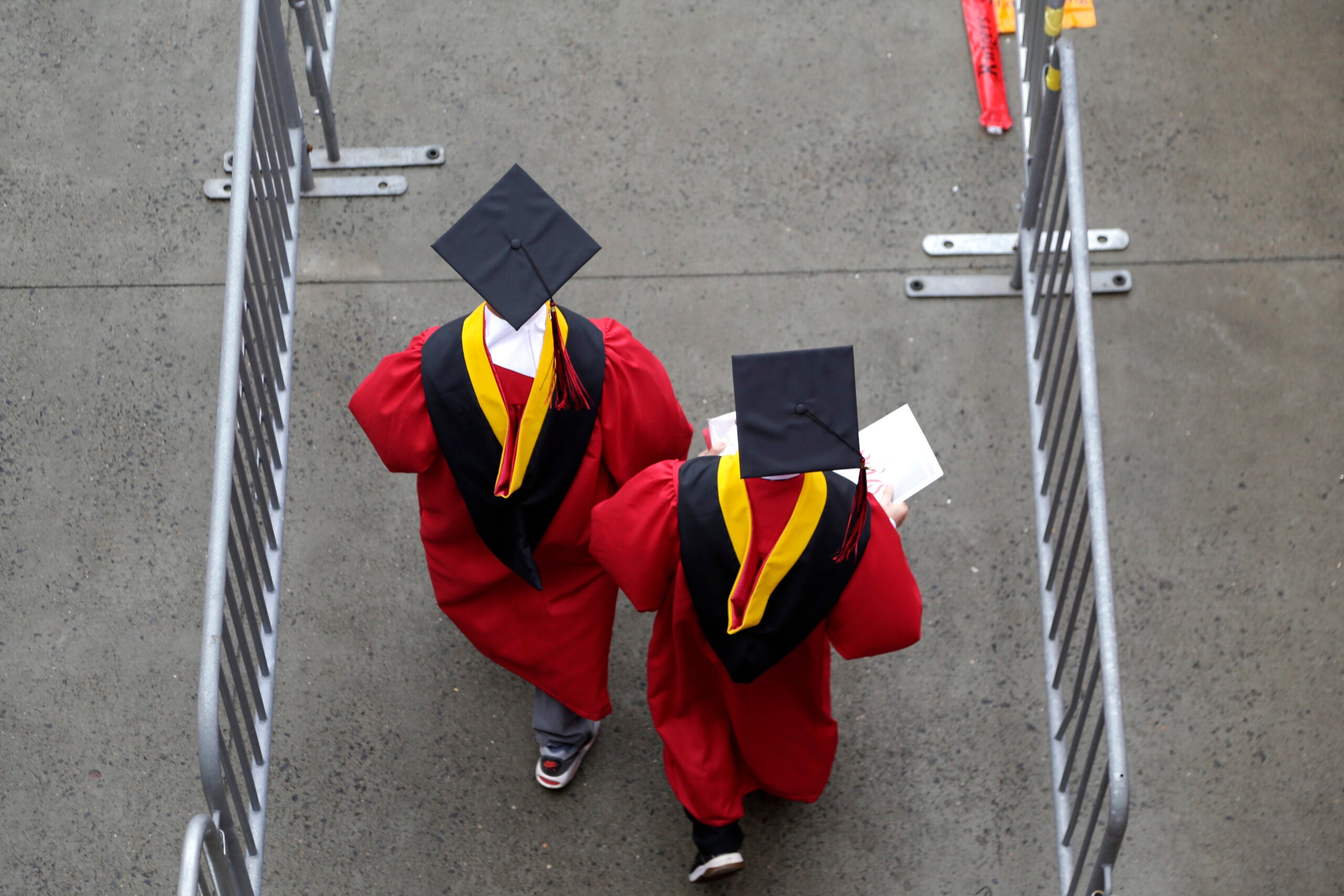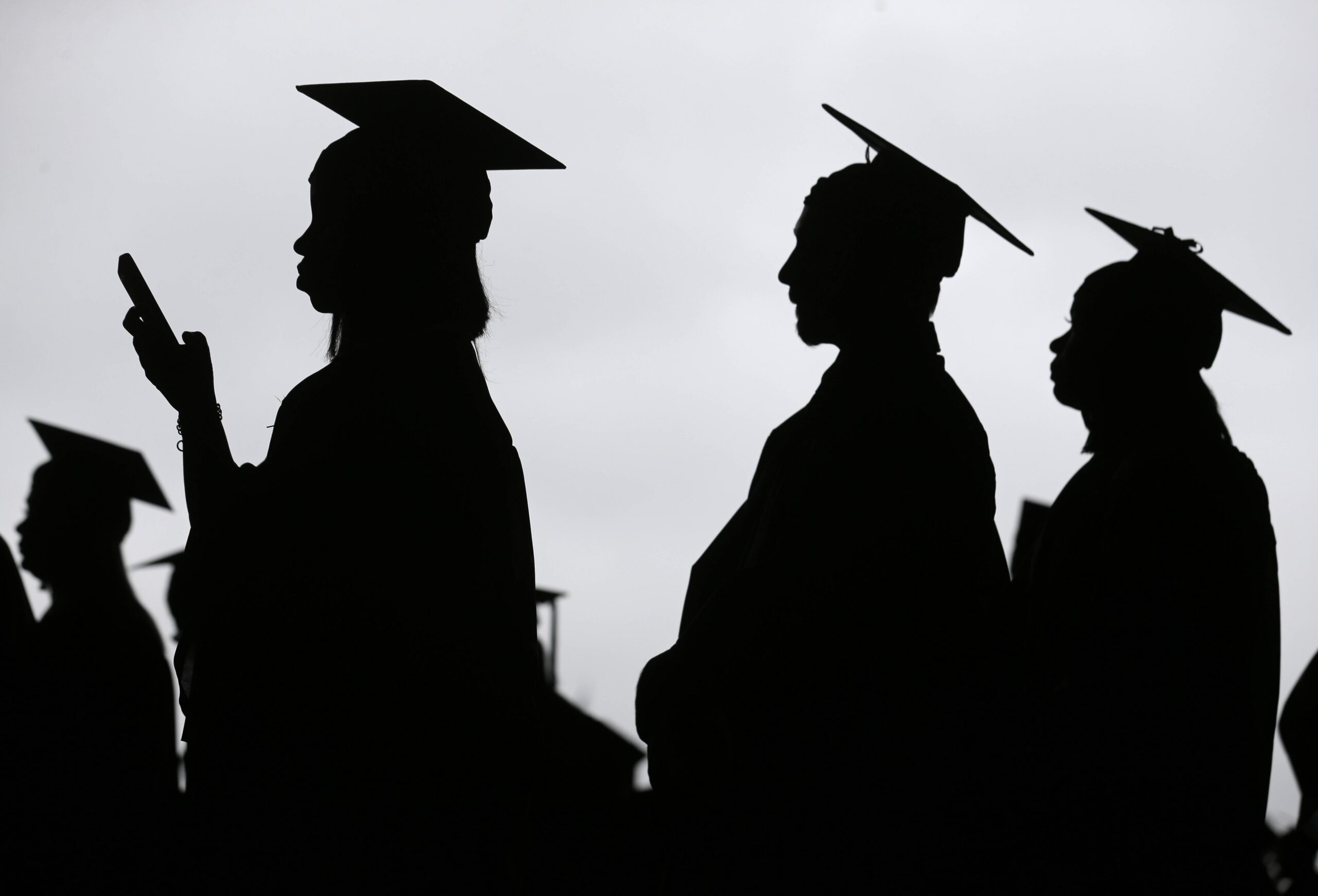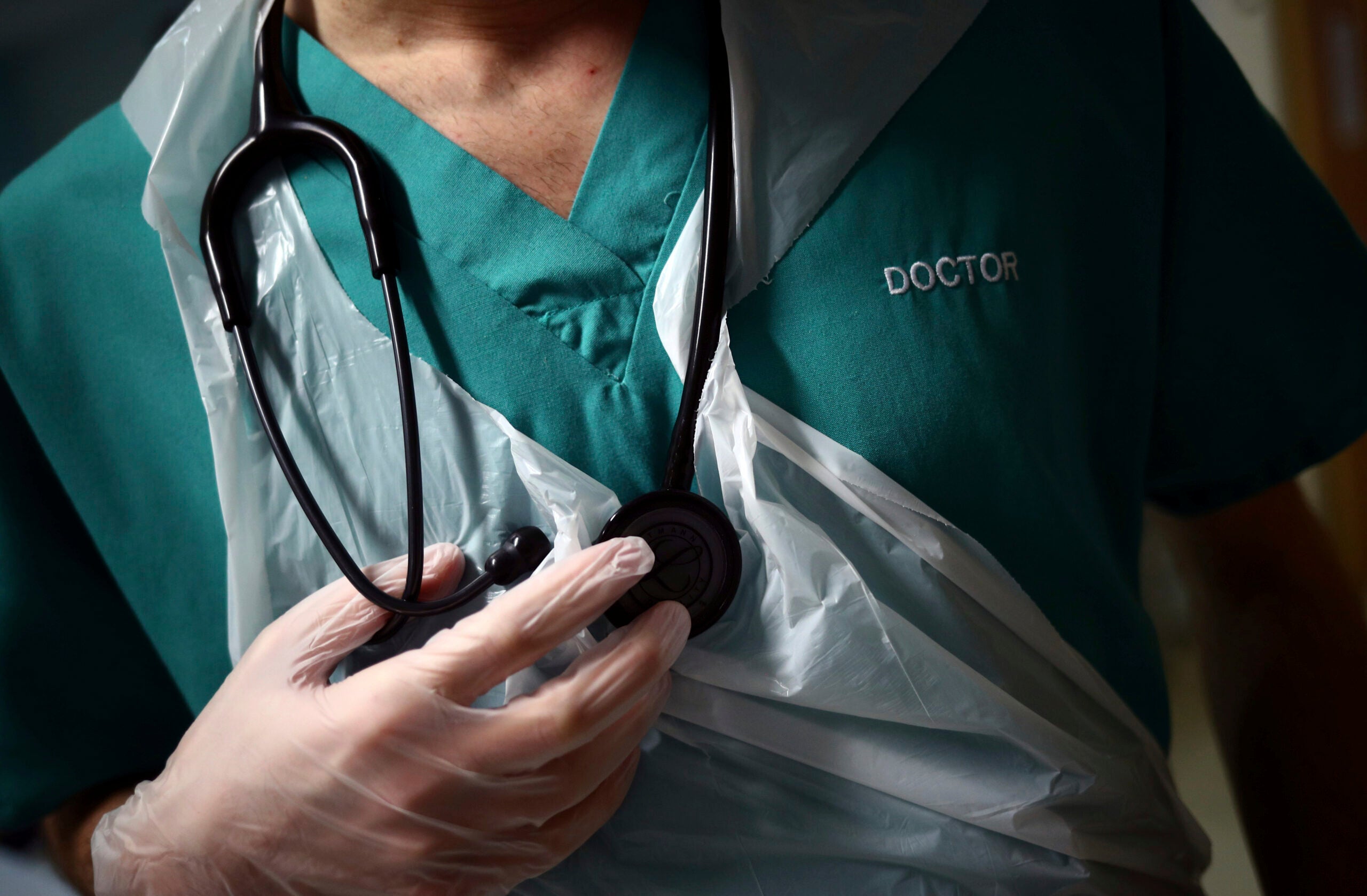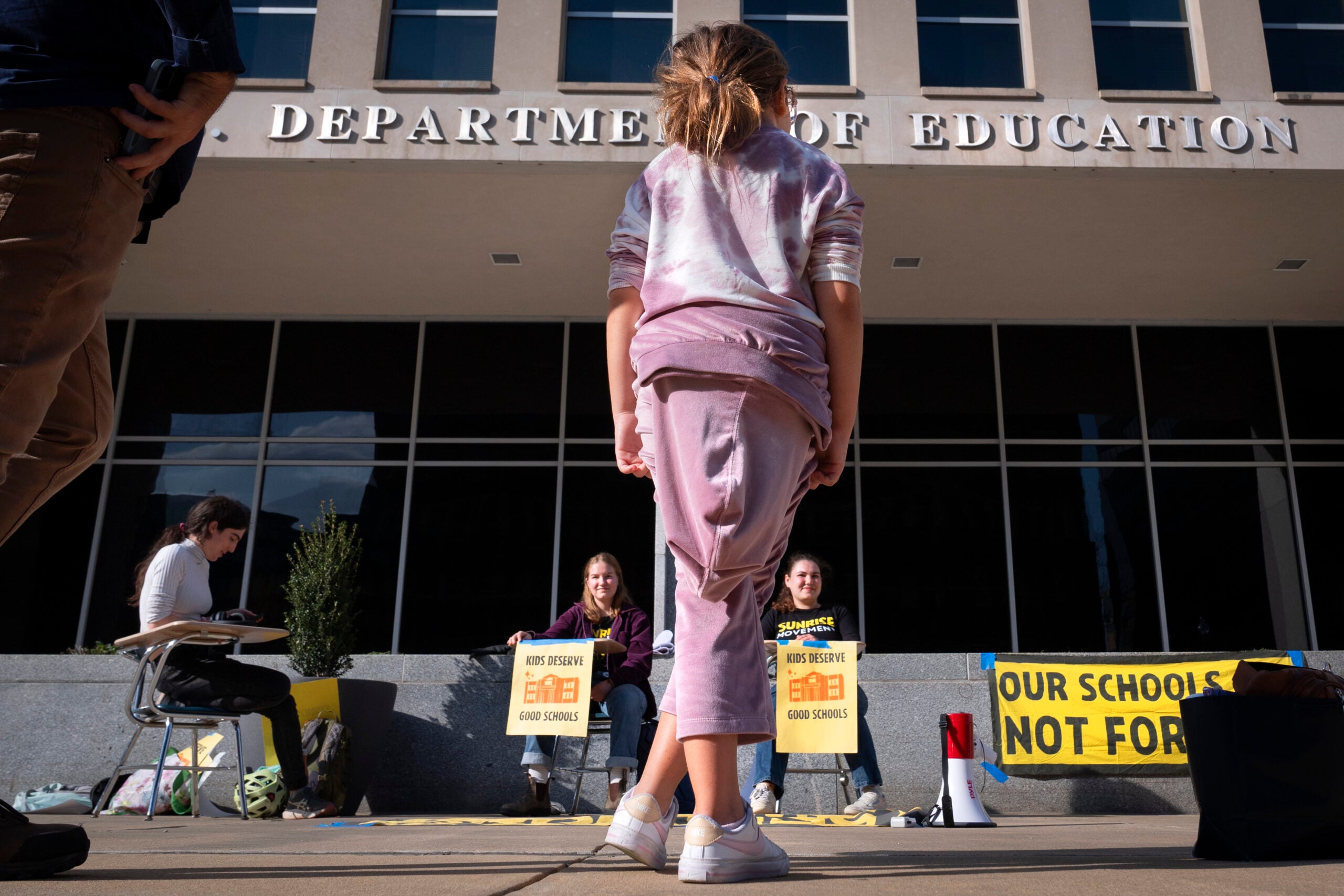President Joe Biden has announced plans to cancel up to $20,000 in federal student loan debt for some borrowers. The plan would likely impact hundreds of thousands of Wisconsinites, with recent data showing 721,000 residents owing more than $23 billion.
In a tweet posted Wednesday morning, Biden said his administration will forgive up to $20,000 in federal loan debt for borrowers who received need-based Pell Grants during their collegiate careers if they make less than $125,000 per year. For students who did not receive Pell Grants, Biden said up to $10,000 in debt would be forgiven for borrowers falling under the same income cap.
Borrowers will need to apply for the student debt forgiveness. A press release from the U.S. Department of Education said applications will be available by the end of the year. The release also said the authority to cancel federal loan debt without the approval of Congress comes from the federal HEROES Act, passed after the Sept. 11, 2001 terror attacks in New York.
News with a little more humanity
WPR’s “Wisconsin Today” newsletter keeps you connected to the state you love without feeling overwhelmed. No paywall. No agenda. No corporate filter.
Estimates released Tuesday by the Wharton School of the University of Pennsylvania suggest Biden’s debt forgiveness plan would cost between $300 billion and $980 billion over 10 years.
Federal student loan payments have been paused since the start of the COVID-19 pandemic. They were set to resume next month, but the administration will pause them again through the end of the year.
Going forward, borrowers on income based repayment plans will not be required to pay more than 5 percent of their monthly income on undergraduate federal loans. The previous cap was 10 percent.
Biden first pledged the $10,000 debt relief plan during his 2020 presidential campaign.
“In keeping with my campaign promise, my Administration is announcing a plan to give working and middle class families breathing room as they prepare to resume federal student loan payments in January 2023,” said Biden’s Wednesday tweet.
Meghan Savaglia is a spokesperson for the University of Wisconsin-Madison’s student government group, the Associated Students of Madison. She told Wisconsin Public Radio students have shared a wide range of reactions about the president’s announcement with one wondering if potential students might have thought more about college knowing some of their debts would be forgiven in the future. She said others indicated that loan forgiveness will help them provide better futures for their families.
“I know that there is definitely a push for more, at least from what I’ve seen,” Savaglia said. “While this is a relief in many ways, there’s a long way to go in terms of solving this problem.”
National groups like the American Federation of Teachers and the American Council on Education, or ACE, championed Biden’s announcement.
“We particularly applaud the focus on low-income borrowers,” said a statement from ACE. “But to avoid forcing current and future students into the same debt morass, we must act in a comprehensive manner to modernize the federal student loan program. Congress, state legislatures, federal agencies, loan servicers, and colleges and universities all bear responsibility for the problems plaguing the student loan program and all must contribute to the solutions.”
Republicans, including U.S. Sen. Ron Johnson, have balked at the proposed costs of Biden’s proposal. In a tweet, Wednesday, Johnson called it inflationary spending that will benefit higher income individuals.
“Grossly unfair to families who didn’t send their kids to college or managed to pay off their student debt,” Johnson’s tweet said.
State Rep. Dave Murphy, R-Greenville, chairs the Assembly’s Committee on Colleges and Universities. He told WPR Biden’s plan is akin to buying votes in this fall’s midterm election. He also said he believes debt cancellation is a bad idea.
“So, people have accepted loans and…taken a contract out to pay that money back,” said Murphy. “And now they don’t do it. This is teaching people a lesson that, gee, maybe there’s something free out there.”
Democrats, including State Rep. Dianne Hesselbein, D-Middleton, celebrated the debt forgiveness initiative. She was part of Democratic Gov. Tony Evers’ Task Force on Student Debt in 2019. She said she doesn’t think forgiving federal loans will drive up inflation, but said it will instead ease individual and family budgets.
“This move is really going to be a game changer for people in the state of Wisconsin,” said Hesselbein. “We heard so many different sad stories about people that were still carrying student loan debt well into their 40s and 50s, their 60s and they were having such a hard time, you know, getting their first house, getting their first car, because wages haven’t kept up either.”
A 2020 report from the state student debt task force offered eight recommendations for offering guidance and relief for those with student debt, including the creation of a “Borrower Bill of Rights,” expanding financial literacy education, increasing need-based aid, creating a statewide tuition promise program and expansions of the Wisconsin Teacher Education Loan forgiveness program and Wisconsin Health Professions Loan Assistance program.
Scot Ross, former executive director of advocacy group One Wisconsin Now, has pushed for state investments in higher education and student debt reforms for years in Wisconsin. He placed the blame for growing student debt on Republicans who he said have focused more on incentives for businesses than college students.
“We’re not doing the investing in higher education that we used to do,” Ross said. “And we’re forcing people, who otherwise wouldn’t have to take on debt, to take on debt because we’ve changed the rules, because we want to enrich rich people and corporations to get tax breaks.”
The most recent data from the U.S. Department of Education show 721,400 Wisconsin residents had an average of $30,581 held more than $23.5 billion in federal student loan debt.
On Aug. 18, the UW System Board of Regents approved a two-year budget request that includes a tuition waiver program for students from low-income families. If approved by the state Legislature, the Wisconsin Tuition Promise would waive tuition costs left over after federal and state financial aid for those from families making less than $62,000 per year in fall of 2023 and beyond.
The program is modeled after UW-Madison’s Bucky’s Tuition Promise program, which has used private donations since 2018 to offer four years of free tuition and fees for students from families with adjusted gross incomes of $56,000 or less.
Former UW System President Tommy Thompson was the first to pitch the statewide tuition waiver as part of his 2020 UW System budget request, but it was rejected by Republican members of the state Legislature’s powerful Joint Finance Committee.
Wisconsin Public Radio, © Copyright 2025, Board of Regents of the University of Wisconsin System and Wisconsin Educational Communications Board.







